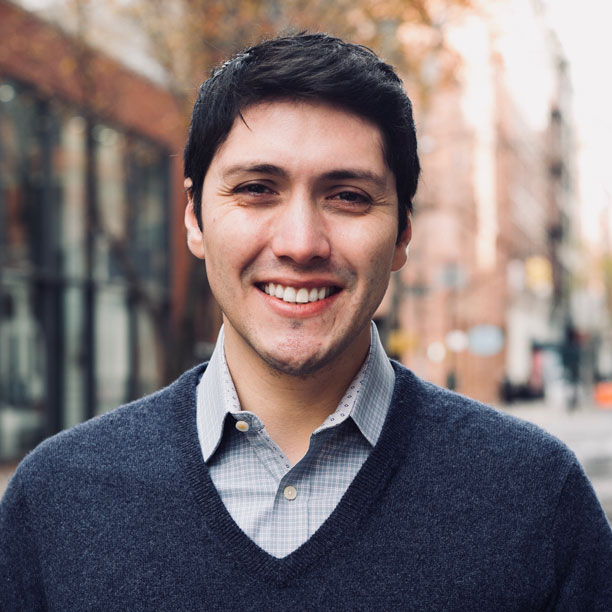Julio Fredes ’11 Works To Give Investors More Say in Public Companies
“Boring, bonehead questions are not cool,” Musk told investors during Tesla’s May 2018 earnings call.
Instead, he wanted a way to interact directly with everyday shareholders in his company.
Enter Julio Fredes ’11, co-founder of Say, a financial technology startup that closes the gap between public companies and their shareholders.
At Princeton, Fredes studied efficient markets — supply and demand and the “invisible hand” guiding it all. But after graduation, he soon saw the world of high finance was not quite as efficient as his economics textbooks suggested.
“The financial services world was really outdated,” recalled Fredes, whose first job after graduation was to analyze the financial services industry for British investment bank Barclays.
In talking with the companies he covered, the operations research and financial engineering major kept spotting imperfections in the financial services infrastructure. “You start to realize that capital markets may not be as perfect as you were taught in school,” Fredes said. “You start to see some of the holes.”
Fredes wanted to be part of the solution. Every day, it seemed, another financial technology startup was emerging.
“I was always a pretty entrepreneurial person,” said Fredes, who grew up an avid tennis player outside of Philadelphia. When he was still in high school, his first venture was a racket restringing business. Fredes often talked with childhood friend Alex Lebow (a University of Pennsylvania grad) about starting their own company together.
But Fredes was still in the post-Princeton rat race that draws many competitive young graduates. After a two-year stint in investment banking, Fredes joined the private equity arm of Jacobs Asset Management, which invested in the financial services industry, especially financial technology. Perhaps as an investor in fintech, Fredes could help improve how Wall Street functioned.
Among the first companies Fredes encountered was a modern-day piggy bank app called Acorns. Users automatically had credit card purchases rounded up to the nearest dollar, with the difference invested in the stock market.
Acorns’ overarching goal, Fredes realized, was to make it as easy as possible for users to start investing. To accomplish that, the creators of Acorns redesigned the entire online investment experience from scratch. Fredes was impressed.
“Frankly, I got secretly jealous,” Fredes said. “They actually were doing something meaningful in the industry that I like.”
Fredes grew close to Acorns and its co-founder Jeff Cruttenden. He soon learned that Acorns had a problem. By law, the company was required to ensure its users received the “regulated investor communications” — the annual reports and shareholder ballots — from the companies in which they invested. Often this comes in the form of stacks of paper that investors simply toss in the garbage. But modern investment apps are all about improving the customer experience and this was “just a poor experience,” Fredes said.
The root of the problem was a misalignment of incentives, he said. While registered broker-dealers like Acorns were obligated to pass along these communications, it was the public companies who were footing the bill.
“So you have this system where the person who picks the service provider, a.k.a. the broker-dealer, is not the person paying, and the person paying cannot pick,” Fredes explained.
Cruttenden, Fredes, and high school friend Lebow — by then a corporate lawyer — saw a “massive opportunity” to improve the situation for all involved. What if they could simultaneously make everyday investors feel more empowered, give public companies a better way to communicate with shareholders, and provide flashy new broker-dealers like Acorns a way to distribute communications that stayed “on brand”? It would be a win-win-win.
“We just can’t not go for this thing,” Fredes recalled thinking at the time.
Cruttenden, Fredes, and Lebow incorporated Say in May 2017, and with the help of billionaire hedge fund manager Steve A. Cohen’s Point72 Ventures — especially partner Tripp Shriner ’07 — Say raised $18 million, Fredes said.
A year later, when Tesla’s Musk was seeking a way to interact directly with investors, Say quickly stepped in. Today, Tesla uses Say’s software to handle its regular conference calls with investors, who are now able to vote on questions they want asked.
In April, the startup also launched an app designed to make it easier for shareholders to vote on issues of corporate governance and otherwise make their voice heard. And the company is looking to add more.
“It’s a long battle, but ultimately we think we’re on the right side of history,” said Fredes. “We’re trying to provide more access to the everyday investor.”










No responses yet